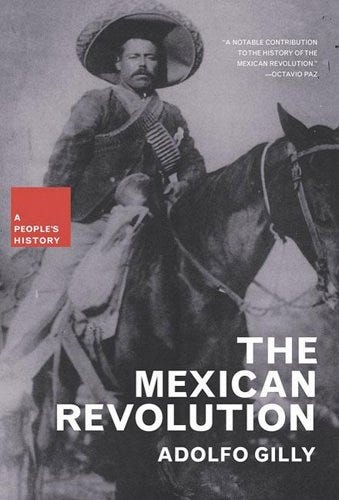

This week on Better Strangers:
* For Halloween, we talked about John Carpenter’s 1988 movie They Live! and how it neatly explains some leftist media theory.
* For the Wednesday column, we talked about Andreas Malm’s How to Blow Up a Pipeline and the strategic and moral arguments behind nonviolence and sabotage.
Coming next week:
* For Monday’s Book Rex, we’re going to be looking at anarchist revolutions in fiction! Specifically, we’ll be talking about Alan Moore’s V for Vendetta, Ursula K. LeGuin’s The Dispossessed, and Tim Maughan’s Infinite Detail.
* For Wednesday’s column, we’re talking to left-wing activists who work within the system. Is government/activist work just harm reduction until the revolution comes? Or can good stuff still get done in American democracy?
When I was a kid in the 90s, it was a cliche that conservative white men all suddenly got really obsessed with World War II the minute they entered middle age. It was part of a midlife crisis, I suspect, in which they realized that the only things they’d read since graduation were Chicken Soup for the Soul, The Book of Virtues, or a business how-to guide written by either Jack Welch or Donald Trump’s charm mentor, Norman Vincent Peale.
World War II history represented a safe space in which white men could engage intellectually with a topic while also not being exposed to anything remotely resembling criticism of the United States, its policies, or its history. There was a whole cottage industry that sprung up around this obsession, from Tom Brokaw’s book The Greatest Generation to Band of Brothers and Saving Private Ryan.
Better Strangers is a reader-supported publication. To receive new posts and support my work, consider becoming a free or paid subscriber.
As I am inching towards middle age, I am hoping that I go through a similar obsession, but instead of obsessing over World War II military tactics, I want to get obsessed with revolution and the Cold War. Given that this month’s theme is “Revolution,” I figured I’d kick off the month’s round-ups by discussing some revolutionary history resources!
Deep Dives
Easily the most in-depth look at revolution that I’ve ever come across is Mike Duncan’s spectacular Revolutions podcast. It is an extremely in-the-weeds look at revolutions through history, covering the English Revolution, the French Revolution, the American Revolution, the Haitian Revolution, the Bolivaran Revolution, the Paris Commune, the Mexican Revolution, and the Russian Revolution. He has stopped with Russia, but one can only hope he comes back someday to cover the anticolonial and communist revolutions of the 20th century in places like Ireland, China, India, Algeria, and Vietnam.
For those interested in the Russian Revolution, the most interesting book I’ve read is China Mieville’s October, which relates the history of 1917 Russia through a broadly Marxist lens.
Mieville’s book is a retrospective, published a full century after the events. For an on-the-ground account, the place to start is John Reed’s famous Ten Days that Shook the World, which has introduction written by none other than Vladimir Fucking Lenin.
Last year, I read my first ever book on the Mexican Revolution, and it blew my mind that this massive event which happened just over our US border was so thoroughly unmentioned in my American schooling. Adolfo Gilly’s The Mexican Revolution (part of Howard Zinn’s People’s History series) is a great place to start.
Finally, if any one person is associated with revolution, it is Ernesto “Che” Guevara. Journalist Jon Lee Anderson wrote an extensive biography of the famed revolutionary’s life, and in the process, managed to discover Guevara’s lost body — he’d been executed by CIA operatives in the Bolivian jungle — to have it returned to Cuba. The story of Che’s life reads like a revolutionary parable: he was radicalized during a trip around South America on a ramshackle motorcycle, made militant by a US-backed coup in Guatemala, and cut his teeth in the Cuban Revolution. The truly interesting part is what happens after they won: Che’s idealism was often at odds with the geopolitical realities Castro faced during the Cold War, and everyone, it seems, breathed a sigh of relief when he left government to become a full time communist revolutionary.
Better Strangers articles on revolution
Obviously this month is about revolutions on Better Strangers, but I have covered the topic in the past, and I wanted to point you in the direction of some of those articles as well:
This is a public episode. If you would like to discuss this with other subscribers or get access to bonus episodes, visit betterstrangers.substack.com